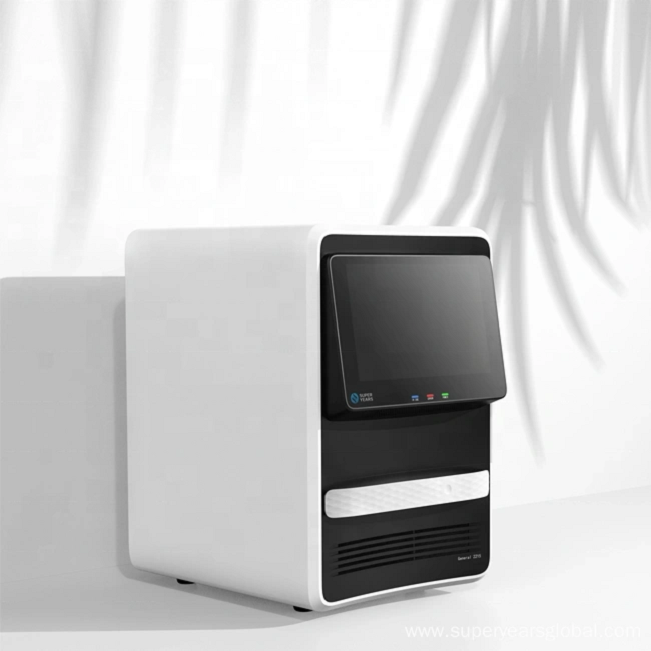
Privacy statement: Your privacy is very important to Us. Our company promises not to disclose your personal information to any external company with out your explicit permission.
RT-qPCR Instrument Display

When choosing a gradient thermal cycler PCR System for a hospital setting, several key considerations need to be taken into account to ensure it meets the specific needs of clinical diagnostics, research, and laboratory workflows. Here are some factors to consider:
1. **Precision and Uniformity**: Look for a thermal cycler with precise and uniform temperature control across all wells in the sample block. This is crucial for obtaining consistent and reproducible results, which is essential in a hospital's diagnostic and research activities.
2. **Gradient Range and Resolution**: Evaluate the gradient range and resolution offered by the thermal cycler. A wide range and high resolution will allow for finer optimization of PCR conditions, accommodating a variety of samples with different optimal annealing temperatures.
3. **Throughput and Capacity**: Consider the number of samples the thermal cycler can process simultaneously. Depending on the hospital's workload, a higher throughput and larger sample capacity may be advantageous for managing a high volume of PCR assays efficiently.
4. **User-Friendly Interface**: Choose a thermal cycler with an intuitive and user-friendly interface, as this will be important for laboratory personnel who may have varying levels of technical expertise. Features such as touchscreen controls and intuitive software can streamline workflow and reduce the potential for errors.
5. **Flexibility in PCR Protocols**: Assess the flexibility of the thermal cycler in accommodating various PCR protocols, including standard Real-Time PCR, quantitative PCR (qPCR), and other specialized amplification techniques. The ability to program and customize PCR protocols is valuable for accommodating diverse testing requirements in a hospital setting.
6. **Data Management and Connectivity**: Consider the data management capabilities of the thermal cycler, including the ability to store and export PCR data, as well as connectivity options for seamless integration with laboratory information systems (LIS) or other software for result reporting and analysis.
7. **Reliability and Service Support**: Look for a thermal cycler from a reputable manufacturer known for reliability and quality. Additionally, consider the availability of service support, warranties, and maintenance options to ensure uninterrupted operation and minimal downtime.
8. **Compliance and Accreditation**: Ensure that the chosen thermal cycler complies with relevant industry standards and regulatory requirements, such as FDA approvals for diagnostic use and adherence to quality management systems, particularly if the hospital is accredited by regulatory agencies.
9. **Cost and Value**: Evaluate the overall cost of ownership, considering not only the initial purchase price but also ongoing running costs, maintenance, and potential for future upgrades to meet evolving testing needs.
By carefully considering these factors, hospitals can select a gradient thermal cycler PCR that aligns with their specific requirements, enabling accurate, efficient, and reliable PCR workflows essential for clinical diagnostics, research, and patient care.
Mail an Lieferanten
April 23, 2024
April 23, 2024
Anfrage versenden

Mr. Mr. Leon Wen
Telefonnummer:0086-025-57561788
Fax:
Mobiltelefon:+8619871200893
E-Mail-Adresse:wenjiajun@superyears.com
Firmenadresse:Nanjing, Jiangsu
Mobile Seite


Privacy statement: Your privacy is very important to Us. Our company promises not to disclose your personal information to any external company with out your explicit permission.

Fill in more information so that we can get in touch with you faster
Privacy statement: Your privacy is very important to Us. Our company promises not to disclose your personal information to any external company with out your explicit permission.